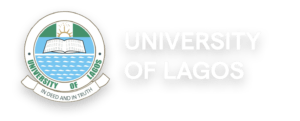A former Commissioner for Transportation, Dr. Muiz Banire, SAN has urged Nigerians to harken to the call of participating in the leadership and affairs of the country.
Dr. Banire made the call at the 28th pre-Ramadan lecture organized by the University of Lagos Muslim Alumni (UMA) at the Prof. Nurudeen Alao Auditorium, Distance Learning Institute, UNILAG. His presentation was based on the theme of the Lecture: ‘National Transformation: Between Responsible Leaders and Responsive Citizenry’.
While decrying the current air of mistrust and intolerance in the country, the legal luminary noted that Nigeria’s multi-ethnic composition should be its strength if leaders and citizens played their part well.
According to him, “The state of our country has made the issue of leadership a public topic in all serious gathering of men and women. Both local and international assessments are concurring on the point that Nigeria has been a long-time victim of bad governance.”


The former UNILAG Law academic expressed dissatisfaction with the leadership selection approach which has over time been built on sex, place of birth, or other meaningless considerations.
Similarly, in his presentation, the leader of the Conference of Islamic Organizations (CIO), Shayk Dhikiryllah Shaffi noted that there was no better time to discuss the topic than now.
His words “The country is transiting from one government to the other; where new leaders have just emerged from a process; when most of them are still at a crossroad as to what their purpose in office is all about.”
He cautioned Muslims not to attribute the position of leadership to public office holders alone but even heads of family as every single leader and follower is accountable to God. The renowned scholar averred that national transformation in Nigeria is possible, but requires leadership and responsive citizenry which are key components for any country to flourish and attract investment.

In her remarks, the Vice-Chancellor of the University of Lagos, Professor Folasade T. Ogunsola, FAS, urged Nigerians to shun ethnocentrism and all forms of violence, as well as allow a peaceful transmission of power following the conduct of the 2023 general elections.


Her words “In line with the theme of this lecture, I appeal that while we continue to monitor our leaders to ensure accountability, we should also look inwards to query how we, as citizens, are showing up in our roles as members of the society”.
The Chairman of the occasion, Alhaji Tijani Babatunde Folawiyo stressed the need for mankind to live together in peace as established by the Holy Qur’an and the Hadith of Prophet Muhammad (SAW).
Alhaji Folawiyo who was represented by Dr. Tajudeen Omobolaji Gaji charged Muslims to continually weave the fabric of brotherhood to further hold the ummah together, irrespective of school of jurisprudence or geographical location.


Earlier in his welcome address, the President of UMA, Professor Khalid O. Adekoya noted that the theme for the lecture series became pertinent, in view of its national importance and global interest.
According to him, the theme further highlights the importance of understanding the diversity among Muslims in particular, and humans in general, towards achieving a peaceful and progressive society.
The occasion also afforded the President the opportunity to give a report of the body’s scholarship awards scheme. Professor Adekoya revealed that a total of one hundred and fifty-six (156) scholarships have been awarded since the scholarship scheme was instituted in 2002. He, however, called for support from well-meaning Nigerians in actualizing the body’s 6-year development plan.



The UMA lecture witnessed the convergence of prominent Islamic scholars, politicians, academics, and dignitaries including former Ambassador to Ghana, Senator Musiliu Obanikoro; Vice-Chancellor, University of Ilorin, Prof. Abdul-Wahab Olasupo Egbewole; Group Editor, Complete Sports, Dr. Mumini Alao; Amir of ‘The Companion’, Imam Nojeem Jimoh; among others.
The University of Lagos Muslim Alumni (UMA) was founded in 1985 with the purpose of promoting a fellowship of individuals who share a common religious interest. The body aims to develop a sound Islamic heritage by coordinating activities and services which contribute to the academic scholarship, entrepreneurship, best Islamic practices, and physical growth of the University of Lagos.








